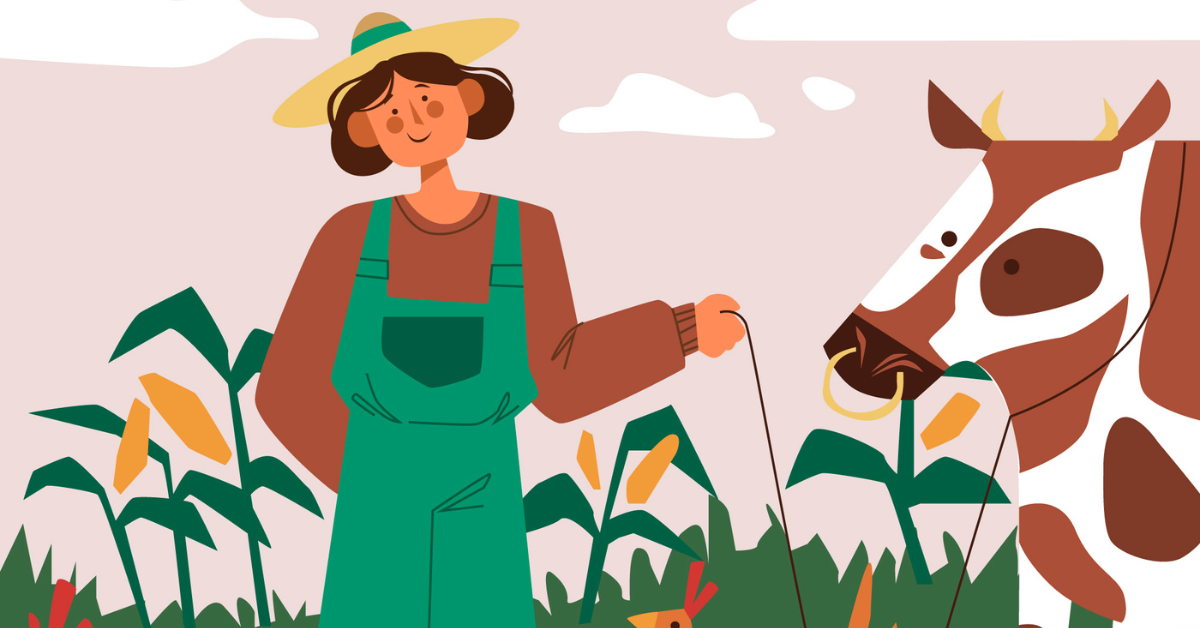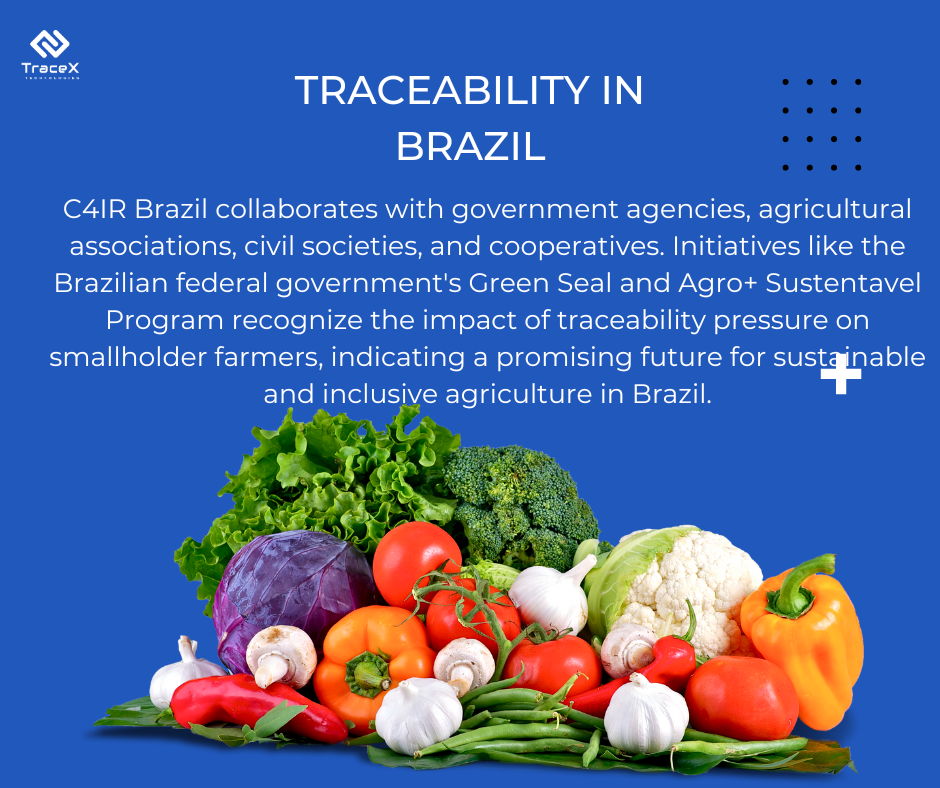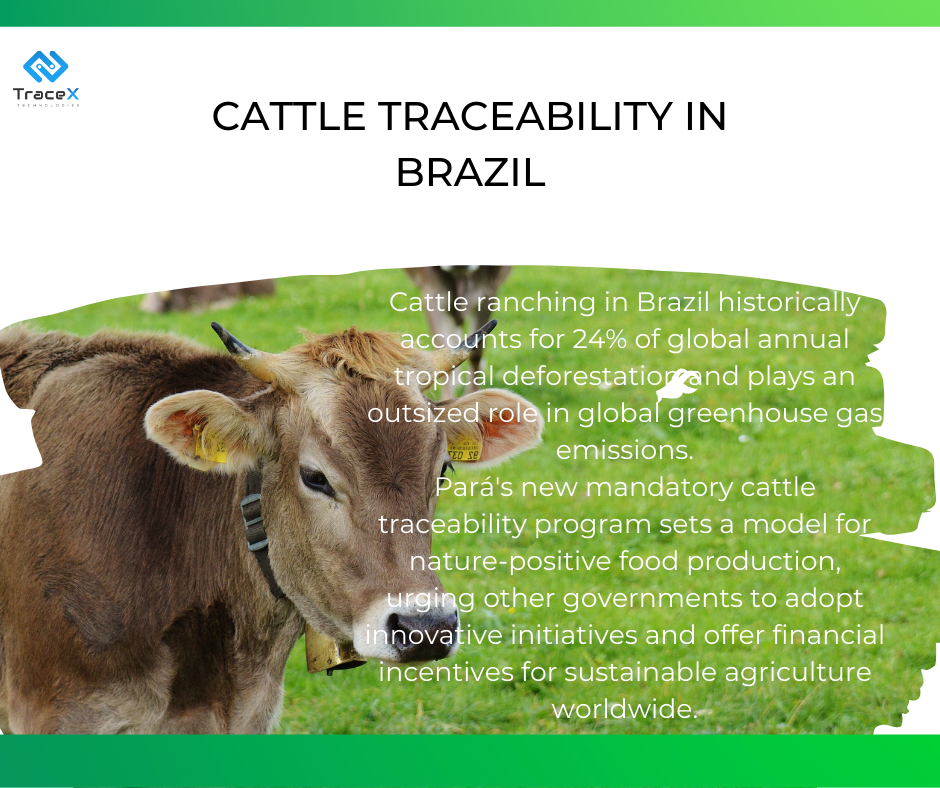Contact: +91 99725 24322 |
Menu
Menu
Quick summary: Explore the transformative impact of digital traceability in Brazil's agricultural landscape. Discover how innovative technologies are revolutionizing supply chains, enhancing transparency, and promoting sustainability. Dive into our blog to uncover the latest trends and insights shaping the future of digital traceability in Brazil.

Imagine sipping your morning coffee and knowing exactly where those beans came from – not just the country, but the specific farm nestled amidst the rolling hills of Brazil.
With the rise of digital traceability in Brazil, this level of transparency is becoming a reality. This innovative approach is not just about tracking coffee beans – it’s about protecting the environment, ensuring fair trade practices, and guaranteeing the quality of the food you eat.
Digital traceability is the capacity to follow products or things across the supply chain via digital technologies. It entails capturing and preserving information regarding the movement, origin, and processing of products in order to ensure transparency and accountability.
Data Capture: At various stages of the production process, relevant information is collected electronically. This might include details like the type of seed used, fertilizers applied, location of the farm, processing methods, storage facilities, and transportation routes. Sensors and internet-connected devices can automate data collection, while farmers might use mobile apps to record manual inputs.
Data Storage and Management: The captured data is stored securely in a central database or distributed ledger (depending on the chosen method). This allows authorized users to access and analyse the information throughout the supply chain.
Data Access and Verification: Different stakeholders can access the data based on their permissions. For example, consumers might scan a QR code on a product to view its origin, processing details, and certifications. Regulatory bodies might access the data to ensure compliance with food safety standards.
Several technologies are used to implement digital traceability in agriculture, each with its own advantages:
Discover the roadmap to enhanced food traceability!
Explore the 5 essential steps to implementing robust traceability systems in your food supply chain.
By harnessing the power of digital traceability, the agricultural industry has the potential to become more transparent, sustainable, and responsible. This not only benefits consumers but also empowers farmers and fosters a more secure and ethical food system for all.
Current agricultural difficulties in Brazil include land degradation, the impact of climate change, and restrictions to market access. Smallholder farmers confront barriers to credit, technology, and knowledge, aggravating their vulnerability.
Adoption of digital traceability systems in Brazil is a promising way to overcome these issues. Farmers may improve transparency, optimise supply chains, and gain access to markets for greater value-added products by embracing technology such as blockchain and IoT. These systems offer real-time monitoring of manufacturing processes, ensuring that quality control and sustainability requirements are met. Furthermore, digital traceability builds customer trust by offering transparency into the origins and practices of agricultural products, ultimately enhancing market access and profitability for smallholder farmers.

Smallholder farmers who use digital traceability encounter technological obstacles and infrastructure needs. Access to reliable internet access and affordable smartphones is challenging, especially in distant areas. Implementing strong digital platforms necessitates investments in hardware and software infrastructure, as well as addressing compatibility difficulties with existing technologies.
Integration with current systems and standards is critical to the success of digital traceability in agriculture. It is critical to standardise heterogeneous data formats and protocols among multiple stakeholders, including farmers, processors, and merchants. Adherence to recognised standards provides seamless interoperability and information exchange across the supply chain, hence increasing transparency and efficiency.
Ensuring data privacy and security is critical in digital traceability programmes. Protecting sensitive information on farmer methods and production specifics necessitates strong encryption protocols and rigorous access controls. Compliance with data protection legislation and the establishment of transparent data governance frameworks fosters stakeholder trust, promoting greater adoption of digital traceability solutions while limiting the risks associated with data breaches and misuse.
Blockchain traceability solutions offer several benefits to smallholder farmers in Brazil:
Transparency: Blockchain provides a transparent and immutable record of transactions, allowing smallholders to track the journey of their products from farm to market. This transparency instils trust among consumers and buyers, leading to better market access and higher prices for farmers’ produce.
Market Access: By showcasing the authenticity and quality of their products through blockchain traceability, smallholder farmers can access premium markets that prioritize transparency and sustainability. This access to higher-value markets can significantly increase farmers’ incomes and livelihoods.
Fairer Prices: Blockchain traceability enables smallholders to prove the origin and quality of their products, reducing the risk of fraud and counterfeit goods. This assurance allows farmers to negotiate fair prices for their produce and avoid exploitation by middlemen or buyers.
Supply Chain Efficiency: Blockchain streamlines supply chain processes by digitizing and automating record-keeping, reducing paperwork, and eliminating manual errors. This efficiency leads to cost savings and improved logistics, benefiting both farmers and buyers.
Access to Finance: With transparent and verifiable records of their production and sales history stored on the blockchain, smallholder farmers can access formal financial services more easily. This access to finance enables farmers to invest in inputs, technology, and infrastructure to improve their productivity and sustainability.
Overall, blockchain traceability solutions empower smallholder farmers in Brazil by enhancing transparency, market access, pricing fairness, supply chain efficiency, and access to finance. These solutions play a crucial role in levelling the playing field for smallholders and contributing to the sustainability and inclusivity of Brazil’s agricultural sector.

TraceX offers cutting-edge blockchain traceability solutions designed to revolutionize supply chain transparency. By harnessing the power of blockchain technology, TraceX enables seamless tracking and verification of product origins, ensuring authenticity and quality assurance at every stage of the supply chain. With TraceX, businesses can enhance consumer trust, streamline supply chain operations, and drive sustainability initiatives. Our user-friendly platform empowers stakeholders to make informed decisions, mitigate risks, and unlock new opportunities for growth. Join us on the journey towards a transparent and sustainable future with TraceX blockchain traceability solutions.
The potential for growth and expansion of digital traceability in agriculture is significant. Smallholder farmers can improve supply chain transparency and accountability by embracing digital technologies like blockchain and IoT. This builds consumer trust and improves market access while also providing fair remuneration for farmers. Furthermore, digital traceability allows for better resource management, which leads to higher production and more sustainable practices.
Emerging trends and breakthroughs in digital traceability include the use of artificial intelligence (AI) for predictive analytics, which enables farmers to anticipate market demands and optimise production as needed. Furthermore, advances in sensor technology enable real-time monitoring of crops, soil conditions, and environmental elements, allowing for data-driven decision-making. Mobile applications give farmers with accessible platforms to input and access information, improving communication and collaboration across the supply chain.
To summarise, the introduction of digital traceability has enormous promise for revolutionising smallholder farming techniques. As previously said, the potential for growth and expansion is substantial, presenting chances for more transparency, market access, and sustainable agriculture practices. Emerging developments and breakthroughs in this field highlight digital technologies’ revolutionary impact on the agricultural sector, providing farmers with tools to make educated decisions and adapt to changing market dynamics. However, for digital traceability to reach its full potential, ongoing investment in infrastructure, capacity development, and stakeholder participation is required. By utilising these breakthroughs, we may not only enhance smallholder farmers’ livelihoods, but also create more resilient and inclusive agricultural systems for the future.
